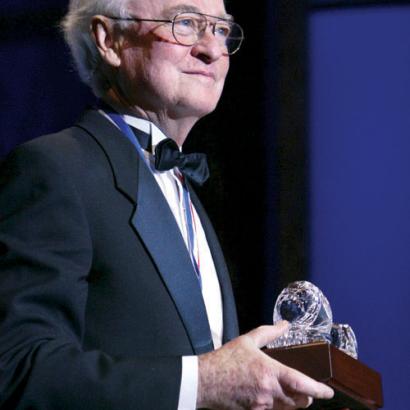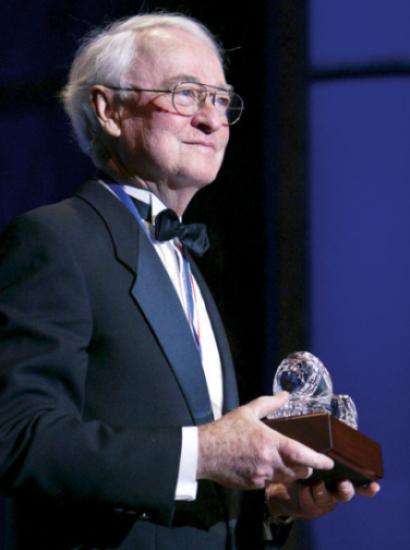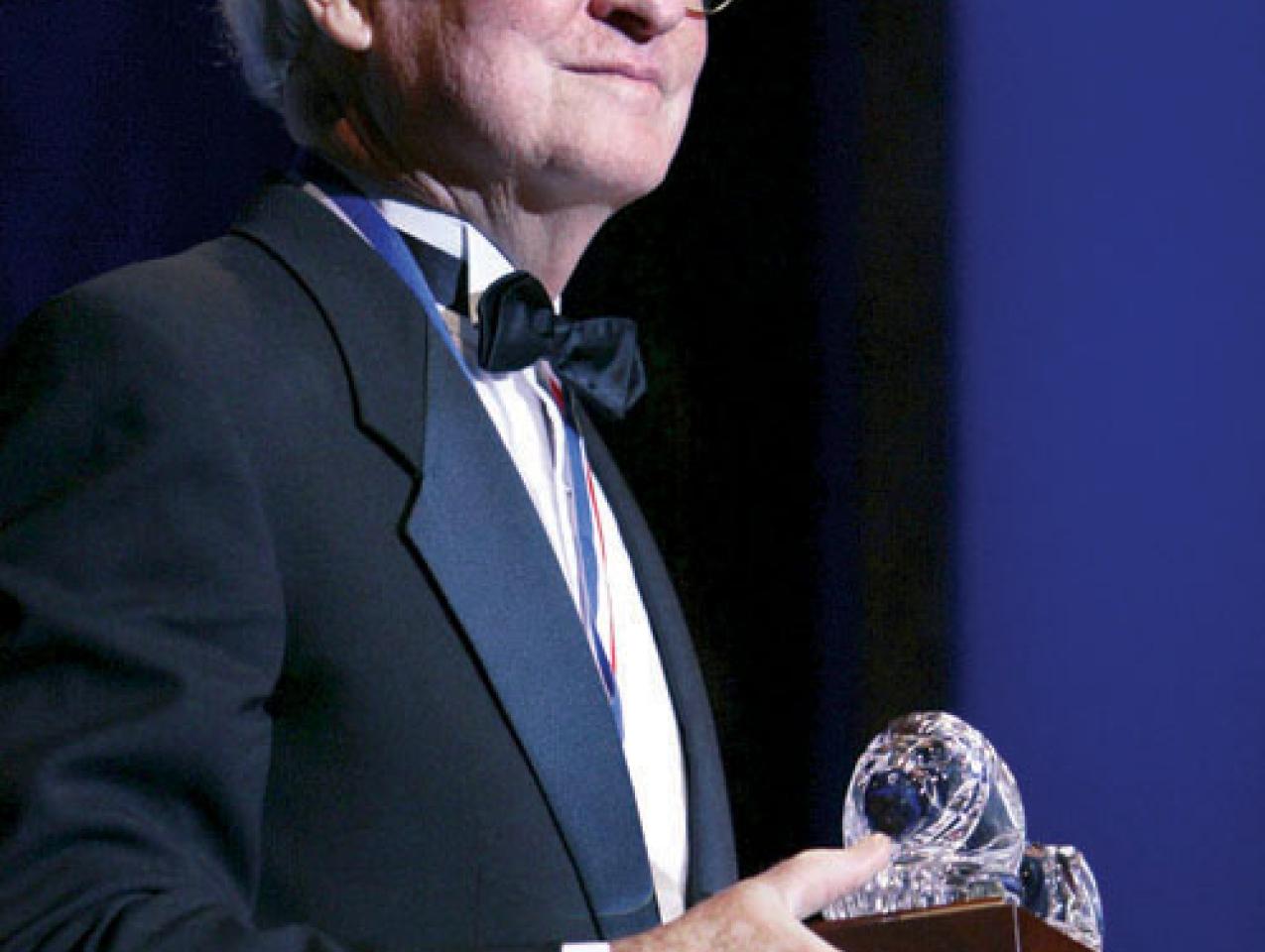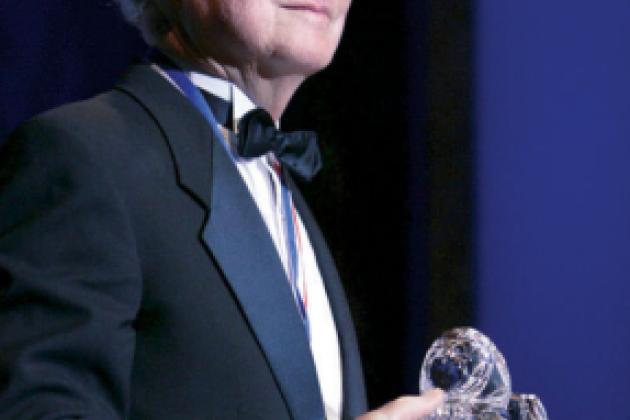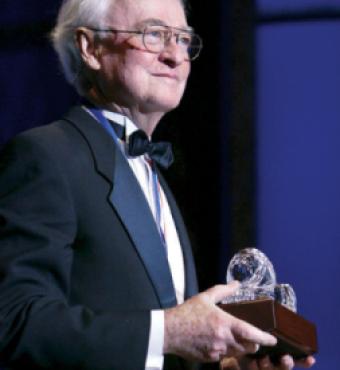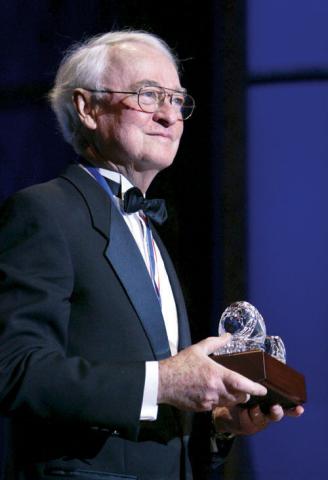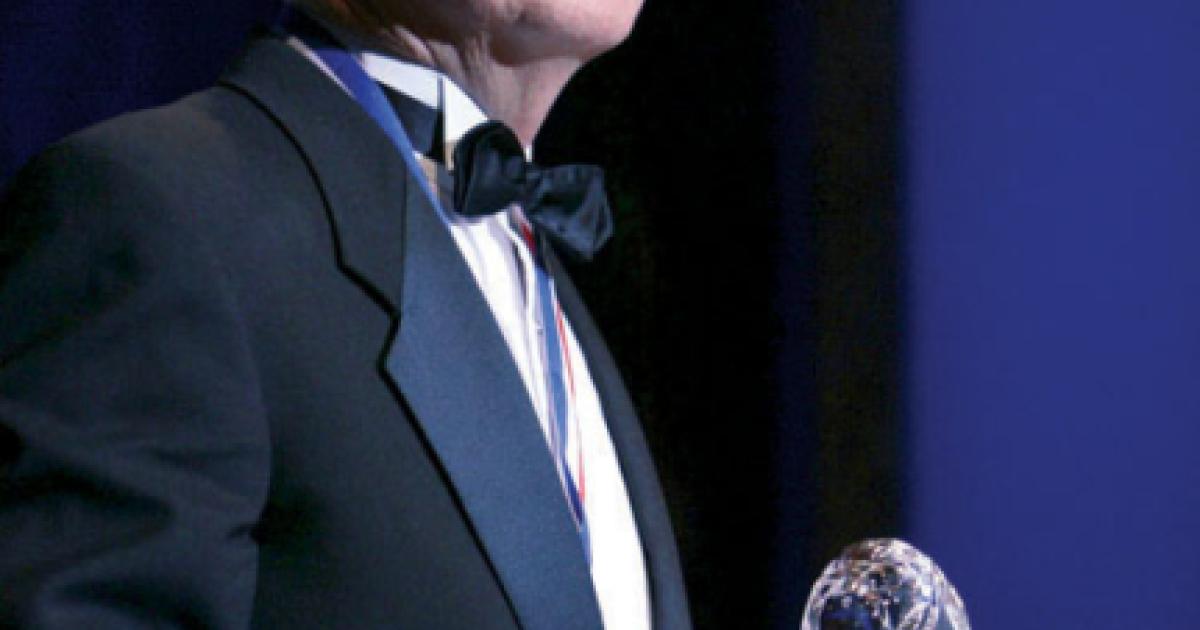- Education
- Contemporary
- Law & Policy
- State & Local
- California
- Civil Rights & Race
- History
Scholar James Q. Wilson, who died a few months ago at the age of eighty, hated to be praised. He was truly modest. Now that he has departed he can do no more, and it is up to those he left behind to secure his reputation. So what did Wilson have to teach us?
It was mostly about the importance of character—in life, in politics, and in political science. Character is taught first by example and then with words.
I begin from the softball and touch football games Jim organized when he was chairman of Harvard’s government department in the early 1970s. These were games among a few faculty and more graduate students, but Jim’s purpose was to put together a team that would challenge Yale’s political science department. We played them several times with forgettable results (Yale won most).
Yale was Harvard’s traditional rival, but at this time it was also the home of the new behavioralist political science that later spread so harmfully across the political science profession. We from Harvard represented the new neoconservative American politics led by Jim. These were contests with a meaning, and Jim approached them with a very unscientific will to win.
The will to win in sports can also be found in politics. It is not the same as the desire for gain, the economic motive that was adopted by the Yale behavioralists as the essence of politics and, again, lamentably lapped up by the profession.
The will to win might make you forgo the desire for gain. It can be dangerous and, because it cannot be removed from human nature, it needs to be controlled. Here is where character comes in.
What Wilson, after his mentor Edward Banfield, called “the progressive impulse” tried to ignore the phenomenon of human partisanship and the need for character to direct it. The progressives, with their social science, thought they could go directly to the rational, economic solution and did not take account of the ways people resist science and reason when they believe it works against them.
These ways are many and unpredictable, particularly since social science in its pompous naiveté cannot see why people resist social science. That is why progressives think they know more than they do and overestimate the ease of change.
When Jim was thirty-five, he had a minor role in the Johnson administration, chairing a commission on crime. At that time he sought out Irving Kristol, editor of a new journal, the Public Interest, who welcomed him and published an article of his in the second issue.
Jim became a regular and wrote more than forty essays during the life of the journal (until 2005), as he and other contributors gradually dismantled every aspect of LBJ’s Great Society. His last article, in the last issue, was called “Character and Culture.”
Jim was a student of political behavior, but he looked at behavior differently from the Yale behavioralists. He once said: “Tobacco shortens one’s life; cocaine debases it.” Note the word debases. Jim said that without embarrassment and without quotation marks. Political behavior consists of self-interest, plus something else not found in the bleak, value-free landscape of behavioralism.
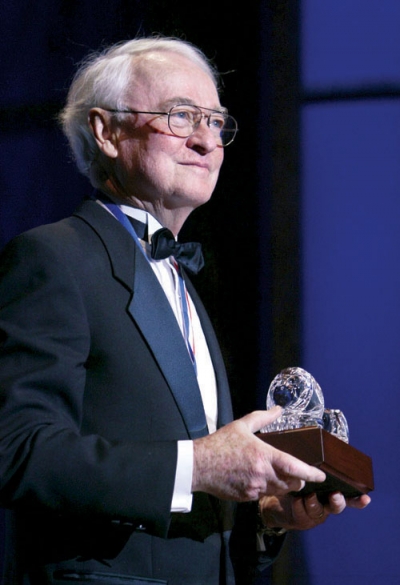
The work of James Q. Wilson, shown accepting the Bradley Prize in 2007, taught the difference between true and false rigor in the study of political behavior. His true rigor gave due weight to necessities, patterns of choice, modes of human character, and happenstance.
Behavior is self-interest plus character, or self-interest wrapped up in character. The word debases is just as much a fact as the word shortens. Social science needs the first as well as the second in order to tell the truth.
But character is not the same as “values.” Character can be studied; values have to be trumpeted. So the study of character is compatible with the study of behavior.
Jim’s work was always rigorous. He didn’t try to be more rigorous than political life permits, but he never failed to seek out and use what empirical data there is. I shall not try to sum up his work—he was the best and most accomplished political scientist of his generation—but simply say that it teaches us the difference between true and false rigor in the study of political behavior. His true rigor gave due weight to necessities, patterns of choice, modes of human character, and happenstance.
Jim did not seek controversy so as to make a name for himself, and he did not avoid it so as to play it safe. He was a teacher at Chicago, Harvard, UCLA, Pepperdine, and recently at Boston College. Mostly he taught at Harvard. Jim’s lectures were a model of clarity and articulate good sense. He was able to make students enthusiastic over prudence, while other teachers gained applause only with displays of soft liberalism or manic extremism. In private, he always gave the best advice you’d ever get.
His public service was extensive, but there were two limitations on what he could do. First, he was limited by the capacity and discernment of those who could have benefited from his advice but chose not to seek it or heed it. Second, and more fundamental, Jim never tried to be more than a professor. It is as if he wanted to teach us by example that there is nothing higher.
There are two other things you need to know about Jim Wilson. This wonderful man had a wonderful wife, Roberta. In the tradition of old-fashioned husbands, everything he did was done for her—and not to settle a personal identity crisis.
And he was very American. He never preached Americanism, but he liked the things Americans like: baseball, steak, beer, cars. And when not keeping up with the profession, he liked a good book.








